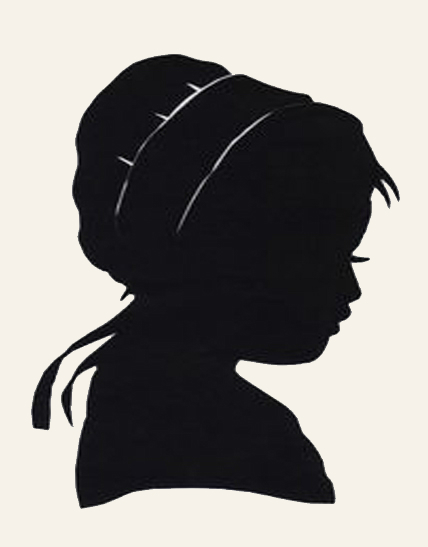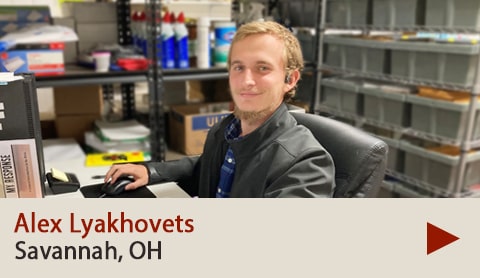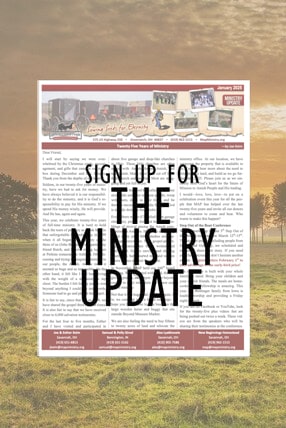From Broken to Beautiful
By Ann Detweiler
September 1, 2022
 Pain.
Pain.
We are familiar with that word. Most of us have experienced it at one time or another. There are many kinds of pain – physical, spiritual, mental, and emotional. We talk about emotional pain like grief because we know what it’s like to lose someone close to us.
But I’d like to draw your attention to a different kind of pain. Most of us know of people who’ve experienced it. Some of us have experienced it first-hand, but few people talk about it. Few people know what to do with it. Most people don’t know how to find healing for themselves, or how to help someone else find healing. Sometimes, it isn’t even acknowledged as pain.
I’m talking about sexual abuse. Sexual abuse is a full-blown epidemic in most Anabaptist communities across the globe. The numbers of victims in our churches are not much different from the general population. According to statistics,1 one in three girls and one in five boys will be abused by age eighteen. (These numbers are on the conservative side. Most conservative counselors say the statistics are much higher in some communities.)
If you have experienced this kind of pain, you are not alone. You are not crazy. It was not your fault. No matter what the voices in your head tell you, the truth is you are not trash. You are not ugly. You are not worthless. You are not beyond hope.
I once was a little girl who felt broken, ugly, worthless and dirty. I felt like a rosebud that someone tried to pry open before it was time to bloom. My innocent childhood was snatched away from me. I wondered if I was normal. I even asked my mom if I was a virgin. Subconsciously, I knew something had happened to me, but at that time, I had no memories of the abuse. In fact, I remembered very little of anything before I was ten years old.
When I was 21, I married a wonderful man who is better than my wildest dreams. Ben. It was on our wedding night that I realized I had been raped years before. It was physically impossible for me to have a sexual relationship. I was devastated. Hurt. Here I was, a young bride who wanted to give everything to my husband, but I couldn’t. My body was remembering the trauma, even though my mind had blocked the memories.
Ben and I contacted our premarital counselor who suggested that we see a doctor to make sure that I was physically healthy and able to have a sexual relationship. A few days after our honeymoon, I was examined by a kind doctor. The invasiveness of the pelvic exam was like experiencing the rape all over again. Everything inside of me screamed, “Stop! Let me go! Why are you doing this?” The pain was so unbearable that I thought I would pass out. Then came the dreaded question, “Have you ever been raped?” The doctor explained that I had vaginismus, which is when the body remembers trauma and causes muscles spasms to occur as a way to protect itself.
For nearly twelve weeks, I faithfully performed the exercises the doctor had prescribed. I cried. I prayed. I was an emotional train wreck. My husband never made me feel like I should just “brace up” or “get over it.”
One day, as I was reading the Bible, I came across the story of the woman who touched the hem of Jesus’ garment. Hmm, I mused. Jesus healed people instantly back then. Maybe we should ask Him to heal me. So I asked my dear husband if he thinks that God cares about sex.
“Of course,” he replied. “I think He does.”
“Do you think He cares enough to heal me?” I asked timidly.
“Why don’t we ask Him?”
So we prayed. It was just a simple prayer. I didn’t “feel” any different, except that I had peace. But in that instant, God healed my vaginismus! It was gone! (Thank you Jesus from the bottom of my heart!)
The next year was a difficult one for me. Though I had experienced physical healing, emotionally my heart was an open wound. I began to have flashbacks of the abuse. My first flashback happened in a dingy cabin while we were camping with our church.
I had just laid down for a nap. As I stared up at the rafters, I suddenly became a little girl again as I tried to distance myself from a man. His eyes reminded me of a vulture eyeing his prey. I immediately curled myself into a fetal position and began to heave deep sobs that had never been released before. I shook, moaned and writhed on the floor for a few minutes. My mind screamed with sheer horror at what had happened many years before. The mental anguish was just as painful as the actual rape. My husband held me as I wept. I was physically, emotionally, and mentally exhausted. I felt like I had been run over by a train. In a way, I had.
Flashbacks are hard to describe. Usually something triggers them. Sometimes they are more of a body memory than an actual mental memory. They leave you weak and vulnerable. In those moments, I felt like a little girl who needed someone to protect me. I wanted to hide. At first, it was hard for me to realize that I was having a flashback, simply because I couldn’t “feel” anything. But Ben learned to read my eyes. He would say, “Ann, are you okay?” And I would burst into terrified tears.
“So,” I hear you asking, “how did you find healing?”
In some ways, the answer is simple. Jesus. In other ways, the answer is complicated. Healing is a journey that takes time. Sometimes years.
First of all, we have to acknowledge and accept what happened. This is an important step. You simply cannot find healing for pain that you refuse to acknowledge. Childhood sexual abuse involves much more than “just” rape. It includes inappropriate touching over and under clothes, the exposure of a child’s body, exposure to porn or adult nakedness, using force or trickery to make a child to perform sexual acts, inappropriate sexual comments made to young children and any kind of vaginal, oral, or anal penetration.
In my case, my mind had blocked those memories as a way to survive the horror. They simply didn’t re-surface until I was at a safe place in my life. If you suspect that you have repressed memories of abuse in your past, I would strongly encourage you to commit it to God. He doesn’t hide things from us that we would be better off knowing. If He thinks that you are ready to deal with things, you will remember enough to work through what happened.
Not everyone blocks memories. Maybe you remember everything, but you don’t want to deal with it. It is hard to face the pain. It hurts. But you really can’t have true joy or peace by stuffing pain. Pushing away pain only works for so long. Eventually, it will stick its ugly head up and scream for your attention until you choose to deal with it. It does not go away on its own.
It isn’t fun to face pain. But let me tell you: It is worth it. It is worth every tear. It is worth every flashback. Please don’t fight it any longer.
Grieve. Grieving is another step in the healing process. After you acknow-ledge the pain, you will likely be very emotional. After all, your innocence was stolen from you. In some ways, grieving your innocence is like grieving a loved one who walked away from God. Innocence can never be returned after it is gone.
Everyone responds differently to grief. Some people need to talk about what happened. Others need to write or journal. You will have days that you do more crying than smiling. You will feel really good one minute and the next you will burst into tears. And sometimes you won’t even know why you’re crying.
During those time of intense grief, bring your pain to Jesus. Climb up onto His lap. Rest your head against His shoulder. Tell Him exactly how you feel. He wants to carry your pain. Let Him do that for you. Spend time in His Word. Mediate on it. Talk audibly with God. Ask Him hard questions. Read good, wholesome books. Take walks. Find someone you can trust who is willing to listen to your heart anytime of the day or night. Your heart is an open wound, so give yourself a lot of grace during this time. Take care of yourself., and don’t rush the process. Take time to grieve.
Renounce the lies. Women who have experienced sexual abuse often face many lies that are deeply rooted in their soul due to the abuse they experienced as children. Some common lies are: “I’m worthless.” “I’m ugly.” “It’s my fault.” “God doesn’t love me.” And so on. Identify the lies you are believing.
Once you have identified these lies, renounce them. Use the Word of God to fight them. There is great power in the Word! (Hebrews 4:12). Stand in front of the mirror and speak truth to yourself. The devil cannot stand the truth. Share your struggle to believe truth with people who will stand and fight with you. Write the truth (opposite of the lie) on a paper and stick it on your closet door where you will see it every day, or write the lie on the bottom of your socks, and then “tramp on that lie” all day long. Visuals like this have helped me to break the bondage of lies in my life.
And now for the most important step in healing from sexual abuse: Forgiveness. I have no idea what comes to your mind when you hear this word, but I would like to explain what forgiveness means to me.
I’m not talking about forgetting what happened to you. I’m not talking about giving the person who abused you a “Get Out of Jail Free” card. I’m not talking about trusting the person who broke your trust. It makes me sad to hear of churches and individuals pushing “forgiveness” on the victim in order to protect and hide the sin of the perpetrator. That is not true forgiveness. I am sorry if that kind of emotional and spiritual abuse is part of your experience. You probably want to scream when you hear this word, and I don’t blame you. But please, keep reading.
True forgiveness is something that is impossible without Jesus. In order to forgive, you need to realize your own sinfulness and accept God’s love and forgiveness for you. Without this, it is totally impossible to truly forgive your perpetrator. When you realize that your sin is really no less sinful in Gods eyes than theirs, it makes it easier to choose forgiveness.
Forgiveness means that I accept what happened and that I choose to deal with the consequences of my abuser’s sin with a cheerful heart. It is saying, “Ok God, I choose to be okay with the flashbacks. I can not help what happened to me, but I can choose my reaction to it.”
Another aspect of forgiveness is taking responsibility for my reaction to the pain. Because we are human, we respond to pain by becoming selfish and bitter. Forgiveness means that we repent of bitterness and that we choose to say, “Yes, what he/she did was terrible, but my bitterness is hurting others too; so I choose to repent of it.”
Forgiveness is not a one-time deal. You may need to forgive your perpetrator 100 times a day. That’s fine. When Peter asked Jesus, “How often should I forgive my brother?” Jesus said, “Until seventy times seven.” (Matt. 18:21-35) Let me translate that in terms of working through sexual abuse. Every time you think about what happened and you feel that familiar bitter spirit begin to rise within you, FORGIVE. Don’t wait. Do it right away.
If you struggle with flashbacks, forgive the minute the flashback is over. You don’t even have to remember who it was that abused you. You can still forgive them. Do it every time. I will be honest with you: Forgiveness is the only way to deal with flashbacks. They are horrible experiences. But I have found so much healing in forgiveness. The prayer I often pray is as follows:
“Jesus, today I choose to forgive (name) for the pain he/she caused me when he/she (what they did to you). I choose to forgive him/her and release him/her. I don’t want to hold this against him/her any longer. Please have mercy on him/her! I will accept the consequences of his/her sin. Will you forgive me, Jesus, for being so focused on myself and bitter toward him/her?”
If you want to find healing, but feel powerless to choose to forgive, ask God to help you. He doesn’t want to see you stuck in bitterness. He is more than willing to give you the power you need to make that hard, but important, choice.
No, forgiveness is not easy. But it is necessary if you want to find healing and peace.
And finally, don’t waste your pain by keeping silent about the healing that God is doing in your shattered heart. Tell someone. Look for opportunities to help someone else find healing from sexual abuse. Don’t forget how it felt to be the little girl with a battered, bleeding heart. There are so many people who need to hear about the redemption Jesus brings to broken children.
I have asked God, “Why? Why me?” I think it is okay to ask questions, but don’t demand an answer. Job asked God “why” too, but God never answered his question. It is not that God didn’t care or didn’t hear. Believe me, He does! He cares about what happened to you, but because His ways are so much higher than ours, our minds cannot always grasp the plans He has for us. (Is. 55:9)
So do I know why I was raped and abused? No. But there’s one thing I am choosing to believe: God has a purpose for everything: even for a little girl who was brutally abused by men who professed to know God.
Has the healing journey been easy? No. Is it worth the pain? YES. A thousand times, yes.
Dear sister, if you have experienced this type of pain, please don’t try to stuff it in or pretend it is not there. There is hope, healing and redemption in Jesus Christ. You don’t need to stay a victim to your past. Remember, He loves you. He wants to carry your pain. He specializes in giving “beauty for ashes”. (Is 61:3) “…And with His stripes, we are healed.” (Is 53:5)
« Back to Articles







